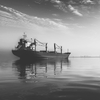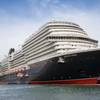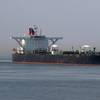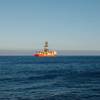National Academies: Marine Debris to Worsen
Current measures to prevent and reduce marine debris are inadequate, and the problem will likely worsen, says a new congressionally mandated report from the National Research Council. The and the international maritime community should adopt a goal of "zero discharge" of waste into the marine environment, and a system to assess the effectiveness of existing and future marine debris prevention and reduction actions should be implemented. In addition, better leadership, coordination, and integration of mandates and resources are needed, as responsibilities for preventing and mitigating marine debris are scattered across federal organizations and management regimes.
"The committee found that despite all the regulations and limitations over the last 20 years, there are still large quantities of waste and litter in the oceans," said Keith Criddle, chair of the committee that wrote the report and the Ted Stevens Distinguished Professor of Marine Policy at the for Fisheries and Ocean Science, of , . "We concluded that the must take the lead and coordinate with other coastal countries, as well as with local and state governments, to better manage marine debris and try to achieve zero discharge."
A National Research Council committee was convened at the request of Congress to assess the effectiveness of international and national measures to prevent and reduce marine debris and its impact. Marine debris, man-made materials that intentionally or accidentally enter and pollute the ocean, can cause significant harm. For instance, birds, fish, and marine mammals ingest debris, especially plastics, which can lead to digestive problems and uptake of toxic compounds. Animals can also suffer injuries or die after becoming entangled in fishing-related debris such as plastic net fragments, rope, and packing straps. Marine debris also poses a health and safety hazard to beachgoers and divers, and could impact coastal recreation and tourism revenue. While marine debris comes from sources both on land and at sea, the committee focused on debris discharged at sea for the purposes of this report.
Although Congress previously called for federal interagency coordination to address the marine debris problem, leadership and governance remain inefficient and current mitigation efforts are episodic and crisis driven, the committee found. A national framework to identify priorities for dealing with marine debris and its removal efforts should be established. Additionally, Congress should designate a lead agency to expand programs to comprehensively address the problem, including land-based marine litter, derelict fishing gear, shipborne waste, and abandoned vessels.
Under the International Convention for the Prevention of Pollution from Ships (MARPOL) Annex V, which entered into force in 1988, many discharges from ships are permissible at sea. The committee said this approach does not encourage innovation or measures to minimize waste. It suggested that MARPOL Annex V be amended to include a prohibition on discharge of garbage at sea, allowing for limited exceptions based on specific vessel-operation scenarios. In order to discourage waste disposal at sea, ships also need to have access to adequate shoreside waste reception facilities for garbage and should be provided incentives, such as low disposal fees to use them, the report adds.
Nevertheless, some ships have already adopted zero or minimal discharge practices. The U.S. Coast Guard (USCG) and U.S. Environmental Protection Agency should disseminate best management practices for how vessels can attain zero discharge, source reduction, and waste minimization, the committee urged. EPA should also take the lead to work with academia, industry, and nongovernmental organizations to develop industry standards and guidelines for source reduction, reuse, and recycling for solid wastes that are generated during ship operations.
The committee was specifically asked to address the challenges surrounding derelict fishing gear. While regulated under MARPOL Annex V and domestic implementing laws, it is a persistent problem because of accidental losses and legal loopholes. Also, current regulations do not include accountability measures for commercial and recreational fishing vessels for loss of their fishing gear, offering few incentives to take responsibility for cleanup.
Effective marking of fishing gear is critical for identifying the sources or fisheries that may have deployed the gear, and NOAA should develop marking protocols, the report claims. Fishery management organizations should also adopt a "no fault" policy regarding the documentation and recovery of lost fishing gear. Under this policy, local fishermen, state officials, and the public should develop cost-effective derelict fishing gear removal and disposal programs, and fishermen participating in removal efforts could receive financial credit or be exempted from landfill fees.
Moreover, the high costs and difficulty in providing adequate reception facilities, particularly in remote areas, discourages proper disposal of used fishing gear and can also be a disincentive to retrieval. Therefore, EPA, NOAA, and the U.S. Army Corps of Engineers should help fishing communities explore alternative strategies and technologies for management, disposal, and recycling of used and recovered gear.
Within the issue of derelict fishing gear, the committee also addressed the growing concern about a specific type of gear known as fish aggregating devices, which are man-made floating objects designed to simulate natural debris and attract fish. These devices pose a threat as they are allowed to float freely and are often made of waste fishing net. The committee concluded that abandoned fish aggregating devices become derelict fishing gear when the captain of the vessel does not retrieve them. Under MARPOL Annex V, this should be considered an illegal disposal if the devices contain synthetic ropes, webbing, or other plastics. NOAA should modify the federal regulations to clarify the circumstances under which abandoned fish aggregating devices become illegal discharge. The committee also indicated that international and domestic fisheries organizations should do more to regulate these devices and prevent them from becoming debris.
The report was sponsored by the U.S. Coast Guard. The National Academy of Sciences, National Academy of Engineering, , and National Research Council make up the National Academies. They are private, nonprofit institutions that provide science, technology, and health policy advice under a congressional charter. The Research Council is the principal operating agency of the National Academy of Sciences and the National Academy of Engineering. A committee roster follows.











